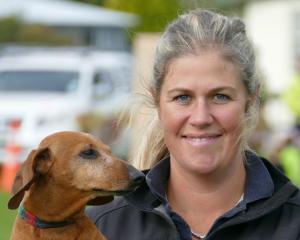Environet Ltd air quality scientist Dr Emily Wilton presented Otago regional councillors her analysis of the region’s emissions data — as well as her evaluation of the reductions necessary to meet a range of air quality guidelines — to inform their decision-making in a review of the council’s air plan.
Dr Wilton’s analysis showed if impending national environmental standards for air quality were to meet World Health Organisation (WHO) air quality guidelines, towns in Otago would not achieve them under the status quo or through non-regulatory measures alone.
The WHO targets — annual average concentrations of PM2.5 of 5mcg per cu m or less — would require a 57% reduction in emissions in Cromwell and Alexandra, she said.
Phasing out all wood burners except ultra low-emission burners would allow Mosgiel, Milton and Arrowtown to achieve the target.
If the council were to phase out all burners except ultra-low emissions burners, prohibit any burners in new homes, conduct outdoor burning management, and introduce non-regulatory measures together, the changes would bring the towns of Cromwell and Clyde under the target level.
But even then Alexandra would not meet the WHO guidelines.
Her report showed only banning all solid-fuel burners would do the trick.
"The health benefits that you will get from improving air quality are really high," Dr Wilton said.
"But they won’t be realised if they are at the expense of people getting really cold.
"So there is a balancing issue there for you to consider."
Another issue was what the impending national environmental standards actually looked like.
At this stage, the new air quality standards had not been produced, she said.
Otago Regional Council regional planning and transport general manager Anita Dawe told councillors at last week’s workshop ultimately the decision the council made "might not satisfy" the new national standards.
But it could nonetheless satisfy the council’s own standards for wellbeing, Ms Dawe said.
Yesterday, she told the Otago Daily Times it was too early to have discussions on what the solutions might be.
"ORC is aware of the need to achieve a balance and we appreciate how challenging the climate is in some of our towns."
Consultation is expected to start on July 30 across Otago.












